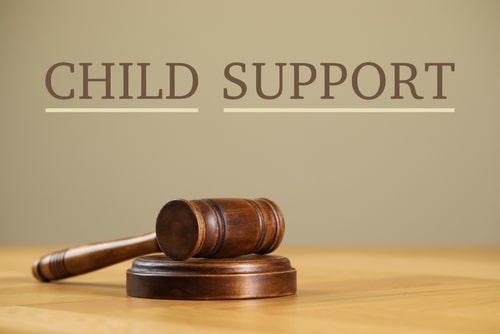Recent Blog Posts
Is Legal Separation Better Than Divorce in Illinois?
 Legal separation in Illinois is similar to divorce in some ways, but it does not end the marriage. Couples who choose to get legally separated rather than divorced may do so because:
Legal separation in Illinois is similar to divorce in some ways, but it does not end the marriage. Couples who choose to get legally separated rather than divorced may do so because:
-
They want to give divorce a trial run.
-
They hope to reconcile.
-
They want to remain married for religious reasons.
-
They want to retain certain benefits.
Choosing to become legally separated has certain consequences. An Illinois family lawyer can help you decide whether a legal separation or divorce might be best for you and your spouse.
What is Legal Separation?
Legal separation is an option th, at Illinois law gives married couples who do not want to live together but also do not want to end the marriage. Like with divorce, a couple who gets legally separated must address certain issues such as:
-
Who retains the majority of parenting time, or physical custody
What Can I Do If My Co-Parent Refuses to Pay Child Support?
 When a court decides that child support payments are necessary, the judge will issue a child support order. This order is usually served to the non-custodial parent (NCP), who is the parent that does not have the majority of physical custody. The child support order contains details such as:
When a court decides that child support payments are necessary, the judge will issue a child support order. This order is usually served to the non-custodial parent (NCP), who is the parent that does not have the majority of physical custody. The child support order contains details such as:
-
The amount of each payment
-
How often payments must be made
-
A termination date for the child support payments, if applicable
Sometimes an NCP does not make child support payments or stops making payments before the termination date. In either case, the custodial parent can ask the Illinois Department of Health and Family Services, Division of Child Support Services (DCSS) to enforce the order.
This article will discuss how child support orders are enforced in Illinois, but it is best to consult an Illinois attorney regarding any questions about child support enforcement.
What Happens if I Fail to Create a Parenting Plan in Illinois?
 Two parents who get divorced in Illinois are required by law to create a parenting plan. A parenting plan is a legally binding document that outlines the responsibilities of each parent toward the child. It is signed by both parents and must be submitted to the court.
Two parents who get divorced in Illinois are required by law to create a parenting plan. A parenting plan is a legally binding document that outlines the responsibilities of each parent toward the child. It is signed by both parents and must be submitted to the court.
Many elements go into a parenting plan, and parents may not agree with each other on all of them. Because of this, it is recommended to have an experienced family lawyer assist you in creating a parenting plan.
This article will discuss what a parenting plan must include and what happens if you fail to create one.
What Does a Parenting Plan Include?
Under Illinois law, a parenting plan must include at least the following:
-
How decision-making responsibilities will be divided among the parents
-
Living arrangements for the child
-
A schedule for parenting time, which is when each parent has the child under his or her care
How Long Do I Have to Pay for My Child’s College?
 Parents who get divorced are required by law to continue providing for their children’s needs. These child expenses include not only child support but also "non-minor support." Non-minor support is financial support, such as assistance with college expenses, that parents must provide even after the child turns 18.
Parents who get divorced are required by law to continue providing for their children’s needs. These child expenses include not only child support but also "non-minor support." Non-minor support is financial support, such as assistance with college expenses, that parents must provide even after the child turns 18.
In cases where one parent is significantly more well-off than the other, that parent will often be the one to pay all or most of the child’s expenses. When it comes to educational expenses, Illinois law is specific about what these expenses include and when they end.
This article will discuss educational expenses and when a parent can stop making payments. As always, it is important to discuss any questions you have about child expenses with an experienced family lawyer.
What Are Educational Expenses?
Educational expenses include tuition and fees for your child’s education, and they do not stop when your child turns 18. Even if your child is legally an adult, you may still be required to fund his or her high school education or higher.
Can a Prenup Make it Easier to Get an Uncontested Divorce?
 When someone files for divorce, it immediately triggers a legal process that requires both parties to agree on many things. One of those things is the divorce itself. If one spouse does not agree to the divorce, or to any other factors in the divorce like child custody or alimony, it becomes what is called a “contested divorce.” This often becomes a difficult and messy process that requires the help of a skilled family lawyer. Having a prenuptial agreement, however, can resolve many of the issues that couples often confront during divorce.
When someone files for divorce, it immediately triggers a legal process that requires both parties to agree on many things. One of those things is the divorce itself. If one spouse does not agree to the divorce, or to any other factors in the divorce like child custody or alimony, it becomes what is called a “contested divorce.” This often becomes a difficult and messy process that requires the help of a skilled family lawyer. Having a prenuptial agreement, however, can resolve many of the issues that couples often confront during divorce.
What Happens in a Contested Divorce?
Litigating a divorce case, or fighting it out in trial, is a last resort that courts do everything they can to avoid. If a couple cannot agree on certain issues, the judge presiding over the case will usually order the couple to attend mediation. In mediation, a neutral party appointed by the court called a mediator will try to get both sides to resolve their differences. The mediator will speak to both sides together and to each side separately to try to achieve a resolution.
Do I Qualify for Alimony If I Get Divorced in Illinois?
 Getting a divorce can be a painful and drawn-out process which does not necessarily end when the marriage does. Couples who want to get divorced should hire an experienced lawyer to help walk them through the legal ramifications of dissolving a marriage. These ramifications can include dividing marital assets, child custody, and spousal support, otherwise known as alimony.
Getting a divorce can be a painful and drawn-out process which does not necessarily end when the marriage does. Couples who want to get divorced should hire an experienced lawyer to help walk them through the legal ramifications of dissolving a marriage. These ramifications can include dividing marital assets, child custody, and spousal support, otherwise known as alimony.
This article will discuss what alimony is, who is entitled to it, and how it is calculated.
What is Alimony?
Alimony is financial support given by one party to another following a divorce. While not every divorce involves alimony payments, many do, especially if one party is not financially independent.
If a court grants a spousal maintenance order to one of the parties, it means he or she must pay alimony to the other. The order will specify the amount of each alimony payment and the duration of the term in which payments must be made.
Navigating Child Support Adjustments in Illinois
 When life circumstances change, adjustments to child support payments may become necessary. Specific legal provisions govern the process of modifying child support orders. An Illinois lawyer can help you with these adjustments, ensuring that both parents and children receive fair treatment.
When life circumstances change, adjustments to child support payments may become necessary. Specific legal provisions govern the process of modifying child support orders. An Illinois lawyer can help you with these adjustments, ensuring that both parents and children receive fair treatment.
Understanding the Grounds for Modification
In Illinois, child support orders can be modified under certain circumstances. The primary grounds for modification include:
- A significant change in either parent’s income, employment status, or financial situation can justify a modification.
- Changes in the child’s needs, such as medical expenses or educational costs, may also warrant an adjustment.
- If the amount of parenting time spent with each parent changes substantially, child support may need to be recalculated.
- Child support obligations may be modified when a child becomes emancipated (reaches adulthood) or develops a disability that requires ongoing financial support.
Managing a Business During a Divorce in Illinois
 Going through a divorce while running a business can be an overwhelming experience. It is important to understand the legal implications and take proactive measures to protect your business interests. An Illinois lawyer can provide valuable insights and legal tips to help you through this challenging period.
Going through a divorce while running a business can be an overwhelming experience. It is important to understand the legal implications and take proactive measures to protect your business interests. An Illinois lawyer can provide valuable insights and legal tips to help you through this challenging period.
Understand Your Business Structure
The legal structure of your business plays a crucial role in determining your rights and obligations during a divorce. If your business is a sole proprietorship or a single-member LLC, it may be considered part of your marital estate, subject to division. However, if you have a partnership or a corporation with other shareholders, the business may be considered separate property, depending on the circumstances.
Valuation and Division of Business Assets
One of the most significant concerns in managing a business during divorce is the valuation and division of business assets. Under Illinois law, marital assets, including business interests, are subject to equitable distribution during a divorce. This means that assets will be divided fairly and justly, considering various factors such as each spouse's contributions, earning potential, and future needs. However, it is important to note that equitable distribution does not necessarily imply an equal split; the division may be disproportionate based on the case's specific circumstances.
Relocation and Child Custody in Illinois
 For divorced or separated parents in Illinois, the issue of relocation and how it affects child custody can be a complex and emotionally charged one. When one parent wishes to move a significant distance away from the child(ren), it raises important questions about maintaining the other parent’s relationship with the child and serving the child’s best interests. An Illinois lawyer can help you understand the guidelines and how relocation cases are evaluated.
For divorced or separated parents in Illinois, the issue of relocation and how it affects child custody can be a complex and emotionally charged one. When one parent wishes to move a significant distance away from the child(ren), it raises important questions about maintaining the other parent’s relationship with the child and serving the child’s best interests. An Illinois lawyer can help you understand the guidelines and how relocation cases are evaluated.
The Legal Standard
Under the Illinois Marriage and Dissolution of Marriage Act (750 ILCS 5/609.2), the parent seeking to relocate takes on the burden of proving that the relocation is in the best interests of the child. The court will consider several factors, including:
- The reasons for the intended relocation
- The reasons for opposing the relocation
- The history and quality of each parent’s relationship with the child
Protecting Your Rights as a Grandparent in Illinois
 If your child is going through a divorce, you may be worried about maintaining your relationship with your grandchildren. Divorce can disrupt grandparent-grandchild bonds, but Illinois law provides some protection for grandparent visitation rights. An Illinois lawyer can help you determine what you need to know to protect your access to your grandchildren during and after your child’s divorce.
If your child is going through a divorce, you may be worried about maintaining your relationship with your grandchildren. Divorce can disrupt grandparent-grandchild bonds, but Illinois law provides some protection for grandparent visitation rights. An Illinois lawyer can help you determine what you need to know to protect your access to your grandchildren during and after your child’s divorce.
Your Visitation Rights Under Illinois Law
Illinois law allows judges to provide visitation rights to grandparents if it is in the child’s best interests. As a grandparent, you can petition the court for visitation if one of the following circumstances applies:
- One of the parents has died or has been declared mentally ill or incompetent.
- The parents are going through a divorce or have been divorced for under a year.
- The child was born out of wedlock, and paternity was established.
Steps to Request Visitation
If you want formal visitation rights with your grandchild after a divorce, here are the steps to take:

 630-409-8184
630-409-8184













